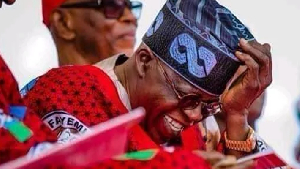The transactions done by foreign investors on the Nigerian Exchange Limited decreased by 53.16 per cent from N19.62bn (about $42.51m) to N9.19bn (about $19.94m) between February and March 2023.
This was disclosed in the March edition of the Domestic & Foreign Portfolio Investment Report of NGX, which was released this month.
The report said, “Total transactions executed between the current and prior month (February 2023) revealed that total domestic transactions decreased by 19.06 per cent from N169.29bn in February to N137.03bn in March 2023. Similarly, total foreign transactions decreased more significantly by 53.16 per cent from N19.62bn (about $42.51m) to N9.19bn (about $19.94) between February 2023 and March 2023.”
Also, as of March 31, 2023, total transactions at the local bourse decreased by 22.60per cent from N188.91bn (about $409.72m) in February 2023 to N146.22bn (about $317.09m) in March 2023.
The performance of the current month when compared to the same period in 2022 (N185.26bn) revealed that total transactions decreased by 21.07per cent. In March 2023, the total value of transactions executed by domestic investors outperformed transactions executed by foreign investors by circa 88 per cent; the figure for local investors stood at 96 per cent to the six per cent of foreign investors.
A comparison of domestic transactions in the current and prior month (February 2023) revealed that retail transactions increased by 51.85 per cent from N34.79bn in February to N52.83bn in March 2023. However, the institutional composition of the domestic market decreased significantly by 37.40 per cent from N134.50bn in February 2023 to N84.20bn in March 2023.
In 2022, total domestic transactions accounted for about 84 per cent of the total transactions, whilst foreign transactions accounted for about 16 per cent of the total transactions in the same period.
As of the end of the first quarter of 2023, foreign transactions stood at N53.71bn; with the figure for January being N24.90bn, February 2023 recorded N19.62bn and N9.19bn was reported in March 2023.
In a chat with The PUNCH, Prof Olawale Ajai of the Lagos Business School attributed the depreciation in Foreign Direct Investment generally in Nigeria to unclear exchange rates as well as the environment not being conducive for business.
“Insecurity and the opaque Naira foreign exchange regime have not helped in recent times, in spite of strenuous efforts on ‘doing business reforms’. National productivity is too low, infrastructure deficits too high and investment in human capital development is abysmal,” he said.
While speaking at the end of the Capital Market Committee meeting, the Director-General of the Securities and Exchange Commission, Lamido Yuguda, also blamed forex for the exit of foreign investors.
Yuguda said, “No matter how attractive the domestic capital market is, a foreign investor will always factor in the ability to transfer their domestic earnings into foreign exchange so that they can repatriate this foreign exchange to their countries.
“At the moment, we all know that we are having some challenges with the foreign exchange situation in Nigeria. That is international investors who are invested, are reporting some delays in assessing foreign exchange for the repatriation of their dividends or their capital.
“So because of this, you are seeing a reduced proportion of foreign investors in the Nigerian capital market relative to what this market has been used to. That is a situation that is not permanent. We expect the foreign exchange situation in this country to substantially improve.”
Business News of Wednesday, 26 April 2023
Source: punchng.com













